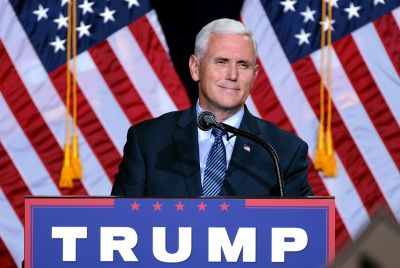UK says governments' Internet power grab will fail
Attempts by China, Russia and others to gain more control over the Internet are doomed to failure, Britain said on Wednesday, after hosting a major conference on cyberspace that it said sent a clear signal to authoritarian governments.
Speaking after the London conference attended by 60 nations, British Foreign Secretary William Hague said threats of cyberterrorism and cybercrime were real, but should not be used as a pretext for online repression.
The conference agreed that efforts to improve cyber security must not be at the expense of human rights, he said, summing up the conference's conclusions.
My message to governments is that in the long term efforts to resist the freer flow of information, the tide that is flowing toward greater transparency and accountability, will fail.
The conference was designed to give fresh impetus to debates taking place in multiple forums about the future of cyberspace, including the growing threat of cybercrime, and the Internet's potential for boosting economic growth.
China, Russia and some other fast-growing economies have been calling in recent months for a bigger say in how the Internet is run. It has until now been loosely governed by a collection of mainly Western-dominated bodies.
I suspect London marks the emergence of two clear camps that have been coalescing this year, said one Western delegate, speaking on condition of anonymity.
The Western agenda is now robustly declared and challenging for China. Will Russia and China decide to play or not?
The conference was dominated by the United States and Europe, with U.S. Vice President Joseph Biden, European Commissioner Neelie Kroes and Facebook policy director Richard Allan among the top speakers.
Russia took part in the conference and stood by its call for a new international treaty or code of conduct for cyberspace to be established by governments.
China sent a small delegation but did not participate actively in the open sessions. It was barely mentioned by name during the conference despite the fact that more state-sponsored cyber attacks are believed to originate in China than in any other country.
NO FINGER-POINTING
Europe is hoping China will help bail out the euro zone, which sank deeper into crisis this week with Greece's call for a referendum on a financial rescue plan.
I don't think you can simultaneously hold a conference of this kind, drawing governments into this discussion, and as people are coming to the door, point your finger at them all and say: 'You are guilty men,' so we are going about this in a diplomatic way, Hague said.
In his closing message, he said: State-sponsored attacks are not in the interests of any country, long term... those governments that perpetrate them need to bring them under control. He did not name names.
Some private-sector delegates like Wikipedia founder Jimmy Wales were less reticent.
People do realize that there are some legitimate problems and that those problems need solutions, he told Reuters in an interview. The difficulty comes when you've got countries like China who maybe view freedom of speech as the problem that needs to be solved.
Canadian academic Rafal Rohozinski, an expert on cyber warfare and chief executive of the SecDev Group, said the West was under pressure to regain control of the agenda on Internet governance in the face of a growing bloc of developing nations that want more influence.
The G8, the Euro-Atlantic alliance if you like, needs to come up with an effective counter-narrative, he told Reuters.
This week's event will be followed by conferences in Budapest in 2012 and Seoul in 2013.
(Additional reporting by Peter Apps; Editing by Robert Woodward)
© Copyright Thomson Reuters 2024. All rights reserved.





















